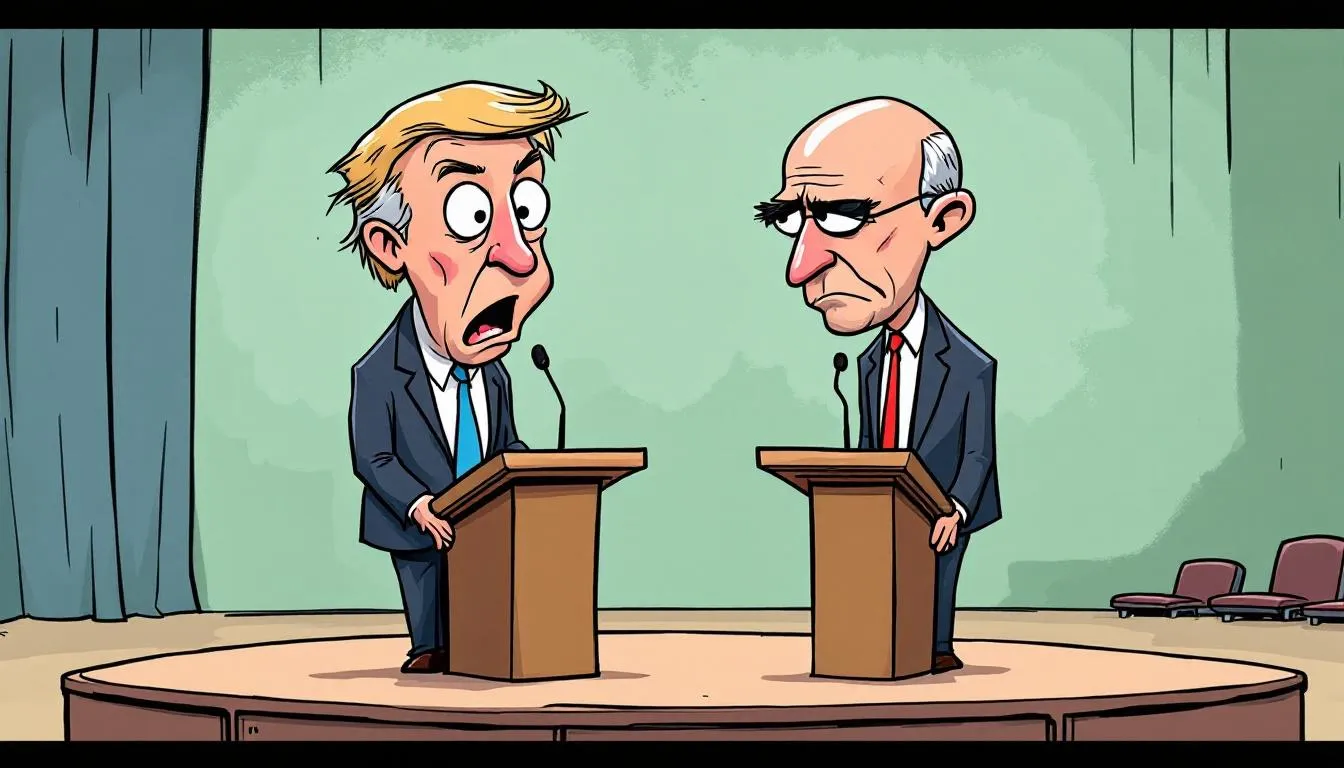Curious about the implications of rescheduling cannabis versus descheduling cannabis? This article explores the key differences: rescheduling moves cannabis to a less restrictive category under federal law, acknowledging medical use but maintaining federal control. Descheduling, however, removes cannabis from federal regulation entirely, giving states full control. Read on to understand the legal and industry impacts of each approach.
Key Takeaways
- Rescheduling cannabis acknowledges its medical use under federal control, whereas descheduling removes it from federal oversight entirely, allowing states full regulatory freedom.
- Changing cannabis’s classification from Schedule I could enhance research opportunities, facilitate the development of cannabis-based medications, and alter the financial landscape for cannabis businesses by impacting tax obligations.
- Despite alcohol being legal nationwide, cannabis remains more restricted under federal law due to its Schedule I status, highlighting inconsistencies in legal classification and scheduling.
- Public support for cannabis legalization has steadily increased, with legislative efforts underway reflecting a shift towards reevaluating cannabis’s legal status, despite ongoing conflicts between state and federal laws.
Rescheduling Cannabis Versus Descheduling Cannabis- Key Differences
 Rescheduling and descheduling cannabis are two distinct approaches with significant legal and regulatory implications. Rescheduling marijuana involves changing its classification within the Controlled Substances Act (CSA), which would acknowledge its medical use but still keep it under federal control. The process to reschedule cannabis requires specific legal and administrative steps under federal law, including scientific and medical evaluations and rulemaking procedures. Conversely, descheduling marijuana would remove it entirely from the CSA, eliminating federal regulation altogether.
Rescheduling and descheduling cannabis are two distinct approaches with significant legal and regulatory implications. Rescheduling marijuana involves changing its classification within the Controlled Substances Act (CSA), which would acknowledge its medical use but still keep it under federal control. The process to reschedule cannabis requires specific legal and administrative steps under federal law, including scientific and medical evaluations and rulemaking procedures. Conversely, descheduling marijuana would remove it entirely from the CSA, eliminating federal regulation altogether.
Rescheduling marijuana would likely place it in a less restrictive schedule, such as Schedule III, aligning it with substances that have accepted medical use but still require regulation. However, rescheduling does not legalize marijuana for recreational use and does not eliminate criminal penalties for unauthorized possession or distribution. Descheduling marijuana represents a more radical shift, freeing it from any federal oversight and allowing states to regulate it independently. Additionally, to deschedule marijuana would further enhance its accessibility.
Stakeholders in the cannabis industry, policymakers, and the public must grasp these differences. The specific schedule assigned to cannabis, such as Schedule II or III, will determine the extent of regulatory oversight, research opportunities, and the severity of criminal penalties.
Rescheduling Cannabis
Rescheduling cannabis involves:
- Recognizing its medical use while keeping federal oversight. The rulemaking process requires the U.S. Department of Health and Human Services and the DEA to evaluate scientific evidence before making any scheduling changes.
- Reclassifying cannabis from Schedule I, which groups it with heroin, to a less restrictive category like Schedule III.
- Acknowledging its medical benefits. For example, rescheduling would still involve strict regulation, similar to schedule II substances such as methamphetamine and fentanyl, which are recognized for medical use but remain tightly controlled.
- Permitting prescription use, similar to ketamine and certain opioids.
The DEA announced its intention to review cannabis’s scheduling status, which has prompted renewed debate. The implications of rescheduling marijuana are significant for the cannabis industry. It would likely enhance the legitimacy of medical cannabis, potentially leading to broader acceptance and use. However, it would not impact state-licensed growers, processors, or distributors outside the jurisdiction of the CSA and FDA.
The timeline and efficiency of implementing rescheduling marijuana are still uncertain.
Descheduling Cannabis
Descheduling cannabis would represent a more dramatic shift by removing it entirely from the Controlled Substances Act. This approach would eliminate federal regulation of cannabis, allowing states complete autonomy in regulating its use, production, and distribution.
Descheduling marijuana could transform the cannabis industry by lifting federal restrictions and allowing more flexible state-level regulation. This shift might spur innovation, growth, and more consistent legal frameworks across states.
Understanding the CSA’s Schedules
 The Controlled Substances Act (CSA) categorizes substances into five schedules based on their medical use and potential for abuse. Cannabis is currently classified under Schedule I, the most restrictive category, which includes substances deemed to have no accepted medical use and a high potential for abuse.
The Controlled Substances Act (CSA) categorizes substances into five schedules based on their medical use and potential for abuse. Cannabis is currently classified under Schedule I, the most restrictive category, which includes substances deemed to have no accepted medical use and a high potential for abuse.
Changing cannabis’s schedule requires navigating complex bureaucratic procedures and international treaties. Rescheduling it within the CSA would place it in a category recognizing its medical use while still regulating its distribution and use. For example, Schedule IV drugs like Xanax are prescribed and dispensed under federal law with fewer restrictions than Schedule I substances, illustrating how regulatory frameworks differ between schedules.
Conversely, descheduling would remove cannabis from the CSA entirely, requiring significant changes in federal and international policies.
Schedule I Classification
A Schedule I controlled substance is classified as having a high potential for abuse. Additionally, it is defined as lacking any approved medical use. Cannabis’s classification as a Schedule I substances places it alongside drugs like heroin and LSD, reflecting a stringent regulatory stance. This classification has significant implications for research and medical use.
Being a Schedule I substance subjects cannabis to the most restrictive schedule, hindering scientific research and limiting its medical availability.
Potential New Classifications
Rescheduling cannabis would likely reclassify it to a less restrictive category like Schedule II or III. These categories require prescriptions and strict regulatory controls but recognize medical use.
Some FDA-approved cannabinoid medications, such as dronabinol (Marinol) and nabilone (Cesamet), are currently available in pill form for specific medical conditions like nausea and appetite stimulation.
This reclassification could significantly lower the barriers for scientific evidence research, allowing for a broader range of studies on cannabis and its effects. It would also align cannabis with other prescription medications, facilitating its integration into mainstream currently accepted medical use.
Research and Medical Use Implications
Both rescheduling and descheduling cannabis could significantly impact medical research and use. Rescheduling would officially recognize its medical value, reclassifying it from a dangerous drug to one with accepted medical use. This shift could open new avenues for research and development, benefiting patients and the medical community.
When evaluating the abuse potential of cannabis for scheduling decisions, psychological dependence is one of the key factors considered.
The current classification hampers research, as obtaining permits for cannabis studies is cumbersome. A scheduling change could alleviate these barriers, creating a more conducive environment for scientific exploration.
Impact on Medical Cannabis Research
Rescheduling cannabis to Schedules II or III would allow it to be prescribed and tightly regulated, enhancing research opportunities. Scientists could then explore its effects on various health conditions beyond pain management, potentially leading to new therapeutic uses.
The current barriers to cannabis research, such as the requirement for DEA permits and research restrictions, could be reduced with rescheduling, facilitating a broader scope of studies. Legislation like the Medical Marijuana and Cannabidiol Research Expansion Act further supports these efforts by improving research and manufacturing processes for medical cannabis.
Development of Cannabis-Based Medications
Rescheduling cannabis could enable pharmaceutical companies to develop new cannabis-based medications. The FDA would ensure the safety and efficacy of these products, a process streamlined by rescheduling.
The role of cannabis flower is also significant—if cannabis flower cannot be prescribed or reimbursed under federal law, state medical cannabis programs may diminish or persist only within state-specific markets.
If rescheduled, banks and landlords might become more willing to engage with cannabis companies, further supporting industry growth.
Effects on State-Legal Cannabis Markets
 State-legal cannabis markets have flourished despite its Schedule I classification. Rescheduling or descheduling could have varied impacts on these markets. Rescheduling might not immediately impact state-legal programs but could increase tax revenues and job creation.
State-legal cannabis markets have flourished despite its Schedule I classification. Rescheduling or descheduling could have varied impacts on these markets. Rescheduling might not immediately impact state-legal programs but could increase tax revenues and job creation.
The economic impact of cannabis legalization is significant, with billions in tax revenue and numerous job opportunities at stake. Public support for legalizing cannabis remains high, further bolstering the case for reform.
State Programs Under Rescheduling
If rescheduled, state programs would continue to operate without gaining federal legality. State-licensed growers, processors, and distributors would remain unaffected, but recreational use sales would still be restricted, except for FDA-approved drugs.
Rescheduling might not immediately change how banks and landlords view cannabis businesses, but it wouldn’t negatively impact state-legal programs. States like Minnesota and Ohio have recently legalized recreational marijuana, reflecting broader acceptance.
State Programs Under Descheduling
Descheduling could align state and federal cannabis laws, easing operational hurdles for businesses and potentially leading to more consistent legal frameworks across states.
Economic and Tax Implications
 Rescheduling or descheduling cannabis could have significant economic and tax implications:
Rescheduling or descheduling cannabis could have significant economic and tax implications:
- Rescheduling to Schedule III would nullify Section 280E of the tax code, lowering tax rates for cannabis businesses.
- This could facilitate interstate trade.
- It could alleviate tax burdens, significantly improving business profitability.
Simplified regulations might encourage pharmaceutical companies to invest in cannabis-based therapies.
Section 280E and Tax Relief
Removing Section 280E would allow cannabis businesses to deduct normal operating expenses, aligning their tax treatment with other industries. This would reduce compliance costs and improve financial stability.
Rescheduling could also facilitate easier access to capital, supporting the growth and expansion of reschedule marijuana businesses.
Business Opportunities and Challenges
Rescheduling could attract new investors to the industry due to reduced regulatory risks, driving innovation and expansion. Additionally, companies may need to reschedule their plans to align with these changes.
However, reduced entry barriers might promote a more competitive market, leading to both opportunities and challenges for new and existing cannabis companies.
Regulatory and Legal Challenges
The regulatory landscape for cannabis is complex, with various federal agencies playing crucial roles. Actions by authorities like Health and Human Services (HHS) and the Drug Enforcement Administration (DEA) can lead to major regulatory changes that affirm or challenge current policies.
Navigating these challenges requires understanding the proposed legal framework and the potential impacts of rescheduling or descheduling law.
DEA and FDA Roles
The DEA has proposed moving marijuana from Schedule I to Schedule III under the Controlled Substances Act, a significant step in cannabis reform that could increase access to traditional banking services for cannabis businesses.
The FDA also oversees the approval of cannabis products, ensuring their safety and efficacy. Researchers often need special permits to study cannabis, a barrier that could be reduced with rescheduling.
International Treaties
International agreements like the Single Convention on Narcotic Drugs restrict how countries classify and regulate substances like cannabis. These treaties impact U.S. policy decisions and complicate descheduling cannabis.
The 1961 Single Convention established strict cannabis controls, affecting national drug policies. Aligning national policies with international agreements remains challenging.
Regulatory Burdens and Quotas
Rescheduling marijuana from Schedule I to Schedule III under the Controlled Substances Act (CSA) would introduce a new layer of federal oversight for the cannabis industry. The Drug Enforcement Administration (DEA) would be tasked with implementing a quota system, much like the one currently used for other Schedule III controlled substances such as anabolic steroids. This shift would mark a significant change for cannabis businesses, as they would need to operate within a tightly regulated framework designed to control the production, distribution, and use of marijuana.
While rescheduling marijuana would acknowledge its medical value and move it to a less restrictive schedule, it would also mean that the cannabis industry must comply with federal regulations that govern all controlled substances under the CSA. This includes adhering to specific quotas, licensing requirements, and reporting obligations, all aimed at preventing diversion and abuse while ensuring adequate supply for legitimate medical and research purposes.
Federal Production Quotas and Licensing
With marijuana classified as a Schedule III substance, the DEA would be responsible for issuing licenses to manufacturers and distributors of medical cannabis. The agency would also set annual production quotas, determining how much marijuana can be legally produced to meet the needs of patients and researchers. These quotas are designed to strike a balance: ensuring that there is enough medical cannabis available for those who need it, while minimizing the risk of excess supply being diverted for non-medical use or abuse.
To maintain the integrity of the system, the DEA would require licensed facilities to implement strict security measures, similar to those in place for other controlled substances. This would include secure storage, inventory tracking, and regular reporting to prevent theft and diversion. For the cannabis industry, this means adapting to a new level of federal scrutiny and oversight, with compliance being essential for continued operation.
Compliance Challenges for Businesses
The introduction of new regulatory requirements would present significant challenges for cannabis businesses, especially small and medium-sized enterprises that may lack the resources or experience to navigate complex federal regulations. Obtaining the necessary licenses, adhering to production quotas, and implementing robust security protocols could be costly and time-consuming. The DEA would need to provide clear guidance and support to help businesses transition to the new regulatory environment.
The Biden Administration would also play a crucial role in ensuring that the regulatory framework is fair and does not disproportionately impact small businesses or minority-owned cannabis companies. Equity and accessibility must be prioritized to prevent the consolidation of the industry in the hands of a few large players.
Rescheduling marijuana would also open new doors for pharmaceutical companies and drug companies interested in developing marijuana-based medications. This could lead to innovative treatments for a variety of medical conditions and create new opportunities for partnerships between cannabis companies and pharmaceutical firms. However, it also raises important questions about the DEA’s dual role as both a regulator and a law enforcement agency, and how potential conflicts of interest will be managed as the industry evolves.
Ultimately, the rescheduling of marijuana would require a comprehensive overhaul of the current regulatory framework. While it would pose challenges for businesses, regulators, and law enforcement, it also offers the potential to reduce the stigma associated with marijuana use and foster a more robust, research-driven medical cannabis industry. The strong public support for rescheduling, as demonstrated during the public comment period, underscores the importance of crafting regulations that are effective, equitable, and responsive to the needs of all stakeholders.
Public Opinion and Political Landscape
 Public opinion on cannabis reform and marijuana reform has shifted dramatically over the past two decades. A significant majority of Americans now support some form of marijuana legalization, reflecting growing societal acceptance.
Public opinion on cannabis reform and marijuana reform has shifted dramatically over the past two decades. A significant majority of Americans now support some form of marijuana legalization, reflecting growing societal acceptance.
Recent legislative efforts, including those directed by the Biden administration, mark a significant step toward reevaluating cannabis’s legal status. Understanding this evolving landscape is crucial for industry stakeholders.
Public Support for Cannabis Reform
Support for marijuana legalization has consistently increased, with recent surveys showing a majority of U.S. adults believe it should be legal to legalize cannabis for medical and recreational use, including marijuana use. Public sentiment overwhelmingly favors medical cannabis, especially among younger adults, with many advocating for legalizing marijuana.
A study of public comments on the DEA’s proposed rescheduling revealed most people favor complete descheduling, highlighting strong public support for significant reform.
Legislative Efforts and Policy Changes
Efforts to reform cannabis laws have been gaining momentum at both state and federal government levels. President biden has directed a reevaluation of cannabis’s legal status, marking a significant policy step. However, conflicts between state and federal laws remain at the federal level and need resolution for a consistent regulatory environment.
Public engagement in the legislative process is high, with over 42,000 comments submitted during the public comment period regarding the proposed rescheduling. This participation underscores the importance of cannabis reform to Americans and highlights the need for lawmakers to address these issues comprehensively.
Summary
The debate over rescheduling versus descheduling cannabis is critical to the future of cannabis policy in the United States. Rescheduling marijuana would place it in a less restrictive schedule, acknowledging its medical use while keeping it under federal control. Descheduling marijuana, on the other hand, would remove it from the Controlled Substances Act entirely, allowing states to regulate it independently.
Both approaches have significant implications for medical research, state-legal markets, the economy, and public opinion. Rescheduling could facilitate medical research and the development of new medications, while descheduling could align state and federal laws, easing operational hurdles for businesses. The economic and tax implications are also substantial, with potential tax relief and new business opportunities on the horizon. Navigating the regulatory and legal challenges, particularly in relation to international treaties, remains a key hurdle. As public support for cannabis reform continues to grow, legislative efforts are likely to intensify, paving the way for a more rational and effective cannabis policy in the future.
FAQs
What is the difference between rescheduling and descheduling cannabis?
The difference lies in that rescheduling cannabis adjusts its classification under the Controlled Substances Act, while descheduling eliminates its classification altogether, allowing states to manage it without federal oversight. This distinction is crucial for understanding the regulatory landscape surrounding cannabis.
How would rescheduling cannabis impact medical research?
Rescheduling cannabis would significantly enhance medical research by lowering regulatory barriers, thereby enabling a wider array of studies and facilitating the development of new medications. This change could lead to more effective treatments and a better understanding of cannabis's therapeutic potential.
What are the economic implications of rescheduling cannabis?
Rescheduling cannabis would enhance financial stability for businesses by allowing them to deduct operating expenses, potentially attracting new investors and enabling interstate trade. This could significantly boost the cannabis industry and overall economic growth.
How does public opinion influence cannabis reform?
Public opinion significantly influences cannabis reform by driving legislative efforts, as a significant majority of Americans now favor legalizing marijuana for both medical and recreational use. This increasing support is paving the way for reforms at various governmental levels.
What are the challenges associated with aligning U.S. cannabis policy with international treaties?
Aligning U.S. cannabis policy with international treaties poses significant challenges due to the restrictions imposed by agreements such as the Single Convention on Narcotic Drugs. These treaties dictate how countries classify and regulate substances, complicating national policy reform efforts.





